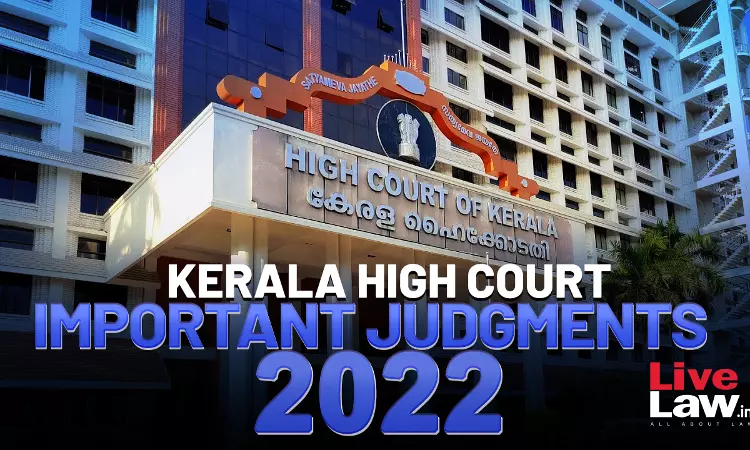Next Story
31 Dec 2022 3:00 PM IST
LiveLaw reported 671 judgements from Kerala High Court in 2022. Here are some of the important decisions:Kerala High Court Upholds 10% EWS Reservation For Veterinary & Dental Courses Under KEAMCase Title: Vinay Shankar v. Union of India & Ors.Citation: 2022 LiveLaw (Ker) 1The Court upheld the 10% reservation earmarked for Economically Weaker Section (EWS) for Veterinary and Dental...

